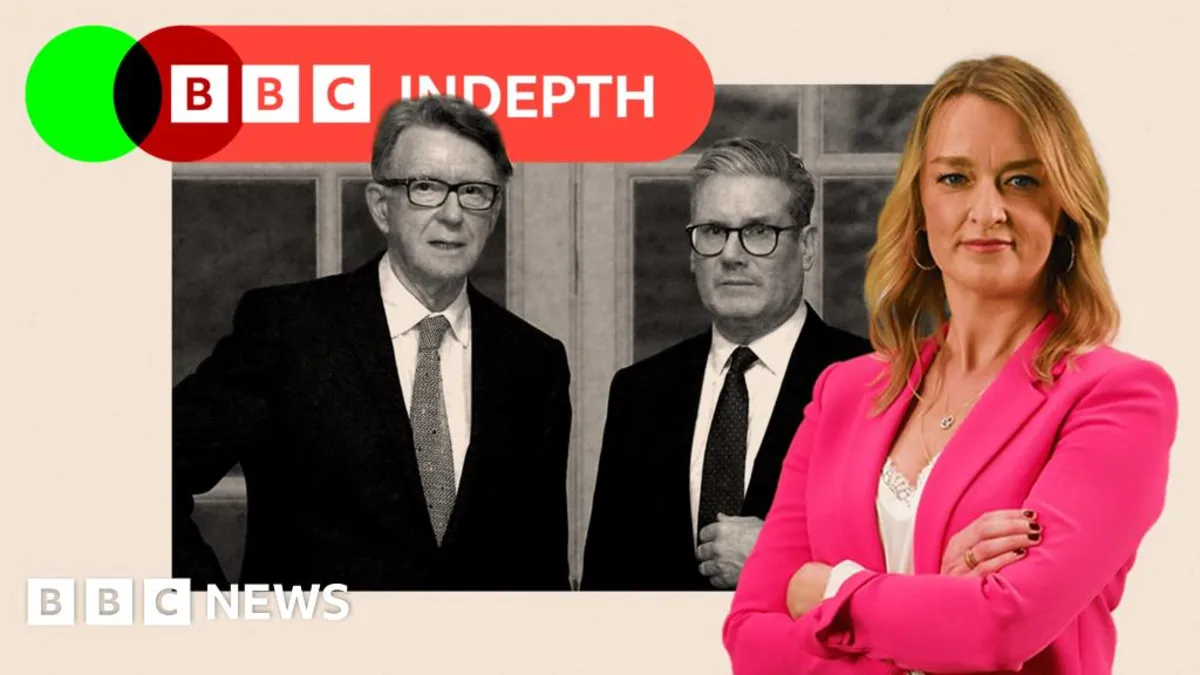
As Donald Trump's state visit looms on the horizon, the political landscape in the UK has hit a tumultuous patch, igniting a blame game within the government. Just days away from this significant diplomatic event, revelations surrounding Lord Mandelson's friendship with the convicted sex offender Jeffrey Epstein have sent shockwaves through Westminster. This situation marks a critical test for the new senior team at Downing Street, which many believe has failed to navigate these revelations effectively.
Critics argue that the government floundered by failing to act decisively in the face of mounting evidence regarding Mandelson's ties to Epstein. The prime minister, who defended Mandelson during a tense session of Prime Minister's Questions (PMQs), now finds himself at the center of the controversy. Despite prior knowledge of the allegations, the decision to publicly support Mandelson has backfired, compromising the prime minister's authority and derailing Labour's attempts for a fresh start.
Within Labour, there is frustration directed not only at Mandelson but also at the leadership's handling of the situation. Sources close to Sir Keir Starmer indicate that he feels let down by Mandelson and others, as he has been forced to address and rectify multiple crises rather than showcase his vision for the party. The current turmoil has squandered Labour's opportunity to reset its image as it heads into an important political season.
The fallout from this scandal has led to questions regarding the vetting process that allowed Mandelson to secure his role as the UK ambassador to the United States. Reports suggest that during the initial vetting by the Cabinet Office, concerns were raised about Mandelson’s connections to Epstein. However, further scrutiny appears to have been lacking, as the Foreign Office’s additional vetting process failed to uncover critical issues, including previous allegations regarding Mandelson's judgment.
The vetting process is supposed to be rigorous, particularly for high-profile positions such as the ambassador to the US, which involves handling sensitive information related to security and trade. Yet, insiders claim that either proper due diligence was not conducted, or the existing information was overlooked. This negligence raises significant concerns about the appointment process within the government.
In the wake of the scandal, Mandelson attempted to downplay the situation, asserting that the revelations regarding his past communications with Epstein were not new. However, the publication of emails by Bloomberg revealed a far more complex relationship than previously acknowledged, prompting alarm bells within the government. By the time the prime minister defended Mandelson in the Commons, critical information had yet to reach Downing Street, rendering the defense ill-timed and misguided.
As the scandal continues to unfold, the question remains: what will be the long-term impact on the Labour Party and the prime minister’s leadership? With the state visit approaching, concerns are mounting about how this situation will affect diplomatic relations and the government’s standing both at home and abroad.
Following this chaotic series of events, Labour is now faced with a critical juncture. The party has upcoming announcements and opportunities that could shift public perception and restore confidence. However, the shadow of the Mandelson scandal looms large, and many within the party acknowledge that the fallout will not dissipate quickly.
As Labour prepares for its conference, Sir Keir Starmer is acutely aware of the need to deliver a strong performance amidst these challenges. Observers note that while the party has made significant strategic decisions, the current predicament indicates a failure in execution. With the political landscape in flux, the need for decisive leadership and clarity has never been more pressing.
Ultimately, the ability of Labour to recover from this scandal will depend on its next moves and whether it can effectively communicate a clear vision to the public. As one minister put it, the situation is a harsh reality that the party must navigate, with the hope that better days lie ahead.